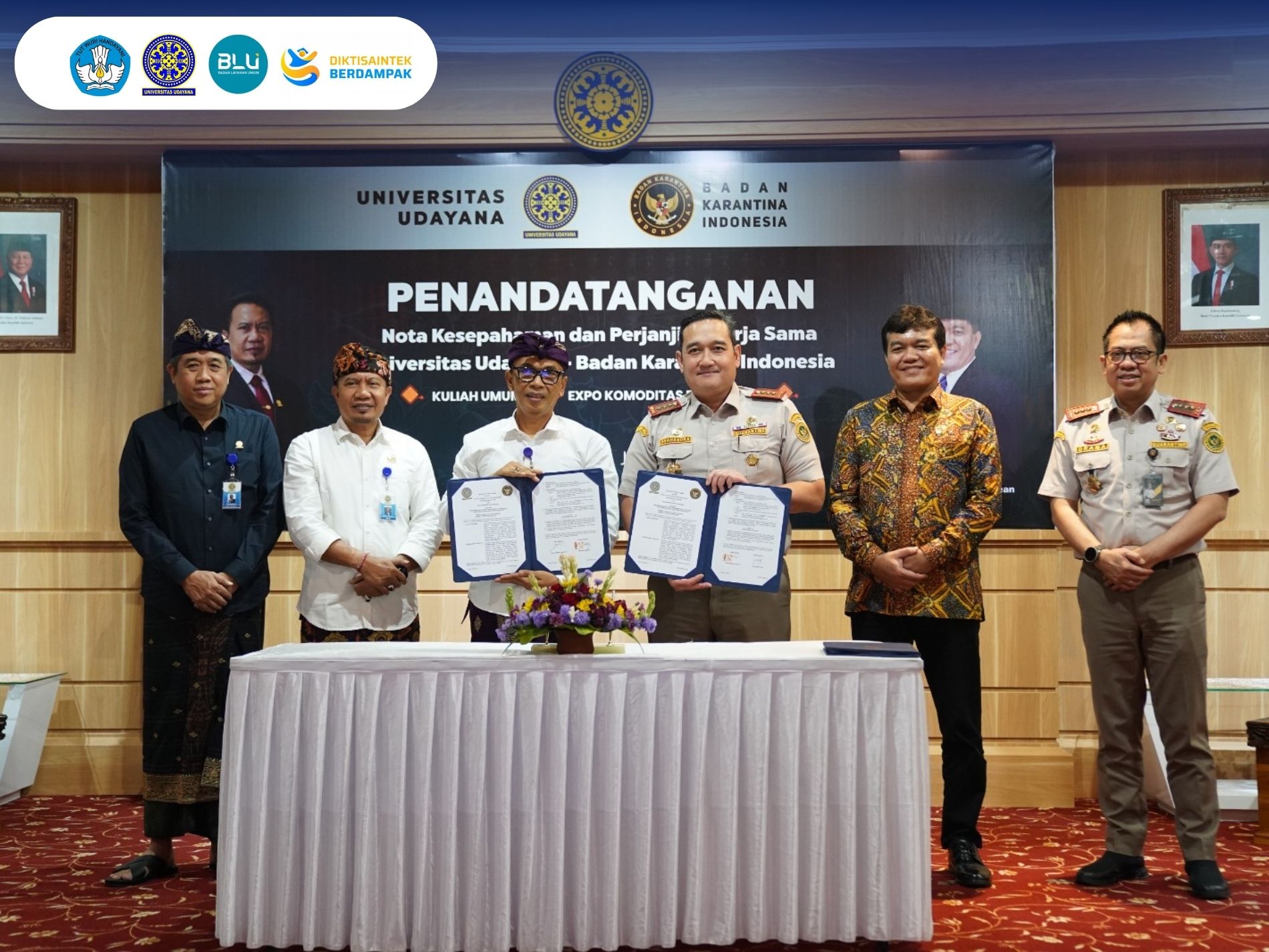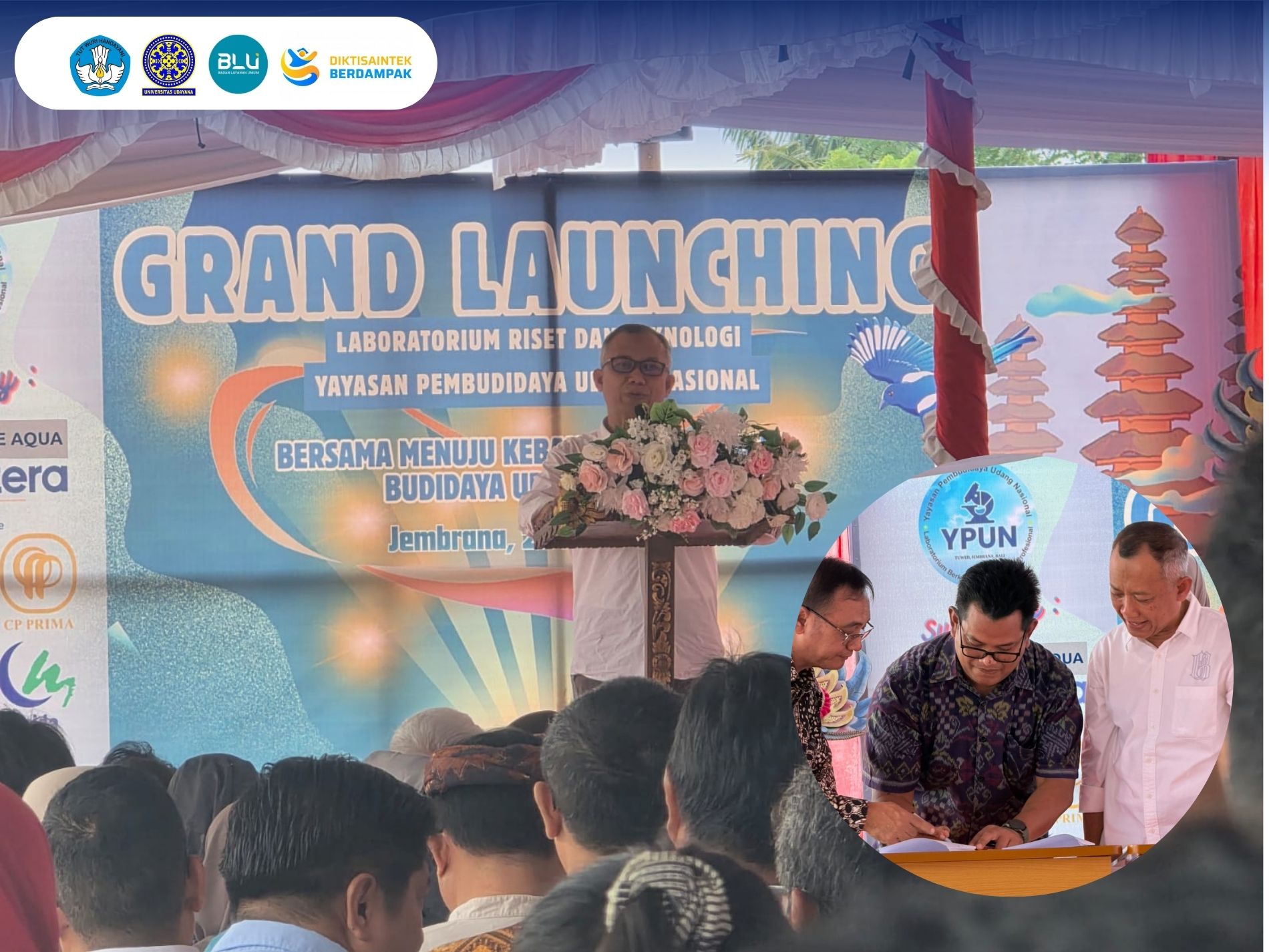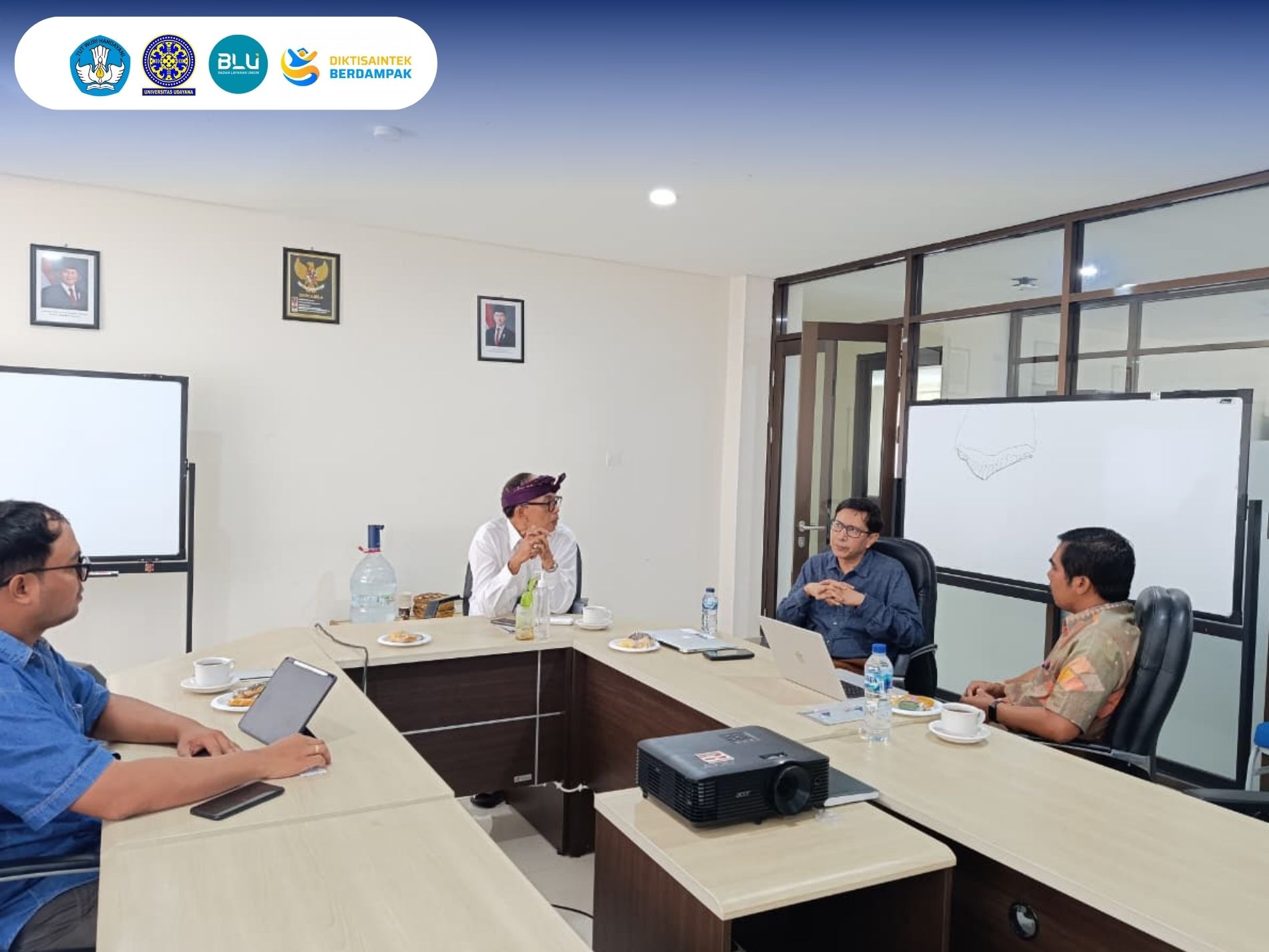Kuliah Umum Prof.Gordon dari Columbia University General Lecture of Prof.Gordon from Columbia University
Siang ini, 20 Juni 2013, FKP mendapat kehormatan atas kunjungan Professor Arnold L. Gordon dari Columbia University yang berkesempatan memberikan kuliah umum dengan topik "the Ocean and the Indonesian Seas". Dalam 30 tahun lebih penelitiannya pada perairan laut Indonesia, Prof. Gordon bekerjasama dengan ARLINDO (Arus Lintas Indonesia) dalam 2 fase, yaitu tahun 1993-1994 dan 1996-1997. Beliau juga tergabung dalam program INSTANT (International Stratification and Transport) yang merupakan hasil kerjasama dari negara-negara seperti Indonesia, Australia, Perancis, Belanda, dan Amerika Serikat yang memantau arus laut pada perairan Indonesia. 
 Dalam kuliah singkat ini, Prof. Gordon memaparkan beberapa hasil penelitiannya yang diawali dengan fakta bahwa air memiliki kekuatan tersendiri (the power of water - as a liquid rock) dimana sekitar 1 juta kalori dibutuhkan untuk menaikkan 1°C panas pada 1m³ air laut. Beliau juga menjelaskan bahwa lautlah yang telah menyelamatkan kita dengan menyerap 93.4% dari pemanasan global (global warming) yang terjadi. Maka dari itu, dalam 10 tahun terakhir telah terjadi peningkatan panas yang signifikan pada air laut. Dalam proses penyerapan panas tersebut, permukaan air laut pada beberapa wilayah meningkat, sedangkan wilayah lainnya menurun. Seperti pada wilayah barat laut Pasifik (Western Pasific); dimana terdapat banyak kepulauan, permukaan air laut meningkat. Beliau pun memprediksikan bahwa dalam sekitar 50 tahun kedepan, bukan tidak mungkin Indonesia kehilangan sekitar 2000 pulau-pulau kecilnya. Berangkat dari penjelasan tersebut, beliau menerangkan bagaimana tingkat keasaman dari laut meningkat karena proses radiasi, dimana wilayah utara laut Atlantik (North Atlantic) menyerap CO2 paling banyak dibandingkan wilayah-wilayah lainnya. Proses ini juga dipengaruhi oleh arah angin yang membawa arus air (terutama cold water) pada laut. Menggunakan TRMM (Tropical Rainfall Measuring Mission), beliau memaparkan tingkat penguapan yang mencapai 13.5 juta m³ per detiknya, dan bahwa wilayah utara dan selatan dari laut Atlantik memiliki tingkat keasaman air laut yang tinggi karena arus penguapan air lautnya. Selain itu, dari tingkat keasaman tersebut; wilayah utara, selatan, dan timur laut pasifik memiliki tingkat salinitas yang tinggi pula. Dalam hipotesa Beliau, tingkat arus air laut yang tinggi terjadi pada masa El Nino, sedangkan tingkat arus yang rendah terjadi pada masa La Nina.
Dalam kuliah singkat ini, Prof. Gordon memaparkan beberapa hasil penelitiannya yang diawali dengan fakta bahwa air memiliki kekuatan tersendiri (the power of water - as a liquid rock) dimana sekitar 1 juta kalori dibutuhkan untuk menaikkan 1°C panas pada 1m³ air laut. Beliau juga menjelaskan bahwa lautlah yang telah menyelamatkan kita dengan menyerap 93.4% dari pemanasan global (global warming) yang terjadi. Maka dari itu, dalam 10 tahun terakhir telah terjadi peningkatan panas yang signifikan pada air laut. Dalam proses penyerapan panas tersebut, permukaan air laut pada beberapa wilayah meningkat, sedangkan wilayah lainnya menurun. Seperti pada wilayah barat laut Pasifik (Western Pasific); dimana terdapat banyak kepulauan, permukaan air laut meningkat. Beliau pun memprediksikan bahwa dalam sekitar 50 tahun kedepan, bukan tidak mungkin Indonesia kehilangan sekitar 2000 pulau-pulau kecilnya. Berangkat dari penjelasan tersebut, beliau menerangkan bagaimana tingkat keasaman dari laut meningkat karena proses radiasi, dimana wilayah utara laut Atlantik (North Atlantic) menyerap CO2 paling banyak dibandingkan wilayah-wilayah lainnya. Proses ini juga dipengaruhi oleh arah angin yang membawa arus air (terutama cold water) pada laut. Menggunakan TRMM (Tropical Rainfall Measuring Mission), beliau memaparkan tingkat penguapan yang mencapai 13.5 juta m³ per detiknya, dan bahwa wilayah utara dan selatan dari laut Atlantik memiliki tingkat keasaman air laut yang tinggi karena arus penguapan air lautnya. Selain itu, dari tingkat keasaman tersebut; wilayah utara, selatan, dan timur laut pasifik memiliki tingkat salinitas yang tinggi pula. Dalam hipotesa Beliau, tingkat arus air laut yang tinggi terjadi pada masa El Nino, sedangkan tingkat arus yang rendah terjadi pada masa La Nina.

 Proses diskusi selanjutnya diramaikan oleh pertanyaan-pertanyaan yang antusias dari mahasiswa FKP, dimana Prof. Gordon memaparkan bahwa dengan mempertahankan arus selat Makassar (Makassar Strait Throughflow), akan memberikan dampak positif bagi perikanan di Indonesia. Selain itu, merujuk pada peningkatan pemanasan global saat ini, Prof. Gordon melihat bagaimana tingkat panas pada lapisan stratosphere, dan memaparkan fakta bahwa penghentian penggunaan bahan bakar atau pembakaran bahan tambang yang meningkatkan tekanan tersebut, tidak akan dapat menghambat proses pemanasan global ini.
Proses diskusi selanjutnya diramaikan oleh pertanyaan-pertanyaan yang antusias dari mahasiswa FKP, dimana Prof. Gordon memaparkan bahwa dengan mempertahankan arus selat Makassar (Makassar Strait Throughflow), akan memberikan dampak positif bagi perikanan di Indonesia. Selain itu, merujuk pada peningkatan pemanasan global saat ini, Prof. Gordon melihat bagaimana tingkat panas pada lapisan stratosphere, dan memaparkan fakta bahwa penghentian penggunaan bahan bakar atau pembakaran bahan tambang yang meningkatkan tekanan tersebut, tidak akan dapat menghambat proses pemanasan global ini.

 Kuliah umum ini juga disisipkan dengan pemaparan mengenai Forced Kelvin Wave dari Kandaga Pujiana, seorang dosen ITB mahasiswa Prof. Gordon yang telah menyelesaikan program s2 dan s3 dibawah bimbingan Prof. Gordon.
Kuliah umum ini juga disisipkan dengan pemaparan mengenai Forced Kelvin Wave dari Kandaga Pujiana, seorang dosen ITB mahasiswa Prof. Gordon yang telah menyelesaikan program s2 dan s3 dibawah bimbingan Prof. Gordon.

 This afternoon, 20th of June 2013, FKP received an honor that Professor Arnold L. Gordon from Columbia University came to visit and has the chance to give general lecture with a topic “the Ocean and the Indonesian Seas”. In his 30 years of research on Indonesian seas, Prof. Gordon cooperated with ARLINDO (Indonesia Through Flow) in 2 phases, which are in 1993-1994 and 1996-1997. He also took part in INSTANT (International Stratification and Transport) program that is formed from the cooperation of several nations, such as Indonesia, Australia, France, Holland, and USA that observe the ocean flow on Indonesian seas.
This afternoon, 20th of June 2013, FKP received an honor that Professor Arnold L. Gordon from Columbia University came to visit and has the chance to give general lecture with a topic “the Ocean and the Indonesian Seas”. In his 30 years of research on Indonesian seas, Prof. Gordon cooperated with ARLINDO (Indonesia Through Flow) in 2 phases, which are in 1993-1994 and 1996-1997. He also took part in INSTANT (International Stratification and Transport) program that is formed from the cooperation of several nations, such as Indonesia, Australia, France, Holland, and USA that observe the ocean flow on Indonesian seas. 
 In this short lecture, Prof. Gordon described his researches started from the fact that water has its own power (the power of water – as a liquid rock), where around 1 million calories are needed to raise 1°C heat in 1m³ sea water. He also explained it is the sea that saves us by absorbing 93.4% of the global warming occurs. That is why, in the last 10 years, there has been a significant increase of heat in the sea water. In the process of absorbing that heat, sea water level on several areas increases, while the other goes down. This can be seen on the Western Pacific area; where there are a lot of archipelagos, sea water level will raises. He also predicted that in the next 50 years, it is possible that Indonesia will lose around 2000 of its small islands. Referring pastillas cialis to those explanations, he describes how acid level of the sea raise from radiation process, where North cialisonline-onlinebestrx.com Atlantic area absorbs more CO2 compared to other areas. This process also affected by wind flow that is taken water flow (especially cold water) in the sea. Through the use of TRMM (Tropical Rainfall Measuring Mission), he describes that evaporation level has reached 13.5 million m³ every second, and that northern and southern area of Atlantic Ocean has a high acid level in its sea water, for cialis drug its evaporation flow of sea water. Besides that, from that acid level; northern, southern, and eastern area of Pacific Ocean also has a high level of salinity too. In his hypothesis, the high level of sea water flow occurs on El Nino phase, while the low level of flow occurs in La Nina phase.
In this short lecture, Prof. Gordon described his researches started from the fact that water has its own power (the power of water – as a liquid rock), where around 1 million calories are needed to raise 1°C heat in 1m³ sea water. He also explained it is the sea that saves us by absorbing 93.4% of the global warming occurs. That is why, in the last 10 years, there has been a significant increase of heat in the sea water. In the process of absorbing that heat, sea water level on several areas increases, while the other goes down. This can be seen on the Western Pacific area; where there are a lot of archipelagos, sea water level will raises. He also predicted that in the next 50 years, it is possible that Indonesia will lose around 2000 of its small islands. Referring pastillas cialis to those explanations, he describes how acid level of the sea raise from radiation process, where North cialisonline-onlinebestrx.com Atlantic area absorbs more CO2 compared to other areas. This process also affected by wind flow that is taken water flow (especially cold water) in the sea. Through the use of TRMM (Tropical Rainfall Measuring Mission), he describes that evaporation level has reached 13.5 million m³ every second, and that northern and southern area of Atlantic Ocean has a high acid level in its sea water, for cialis drug its evaporation flow of sea water. Besides that, from that acid level; northern, southern, and eastern area of Pacific Ocean also has a high level of salinity too. In his hypothesis, the high level of sea water flow occurs on El Nino phase, while the low level of flow occurs in La Nina phase. 
 The next discussion process is also filled by enthusiast questions from FKP students, where Prof. Gordon describe that by defending Makassar Strait Throughflow, it will have positive impacts on the fishery in Indonesia. Besides that, referring to the global warming raise nowadays, Prof. Gordon see how heat level in the stratosphere is, and describe the fact that stopping the use of fuels or mining exhaust that raise this pressure, will not help impeding the global warming process.
The next discussion process is also filled by enthusiast questions from FKP students, where Prof. Gordon describe that by defending Makassar Strait Throughflow, it will have positive impacts on the fishery in Indonesia. Besides that, referring to the global warming raise nowadays, Prof. Gordon see how heat level in the stratosphere is, and describe the fact that stopping the use of fuels or mining exhaust that raise this pressure, will not help impeding the global warming process. 
 This general lecture is also filled by a short lecture on Forced Kelvin Wave from Kandaga Pujiana, a lecture from ITB, which happens to be Prof. Gordon student that has finished his S2 and S3 program under the guidance of Prof. Gordon.
This general lecture is also filled by a short lecture on Forced Kelvin Wave from Kandaga Pujiana, a lecture from ITB, which happens to be Prof. Gordon student that has finished his S2 and S3 program under the guidance of Prof. Gordon. 




UNIVERSITAS UDAYANA